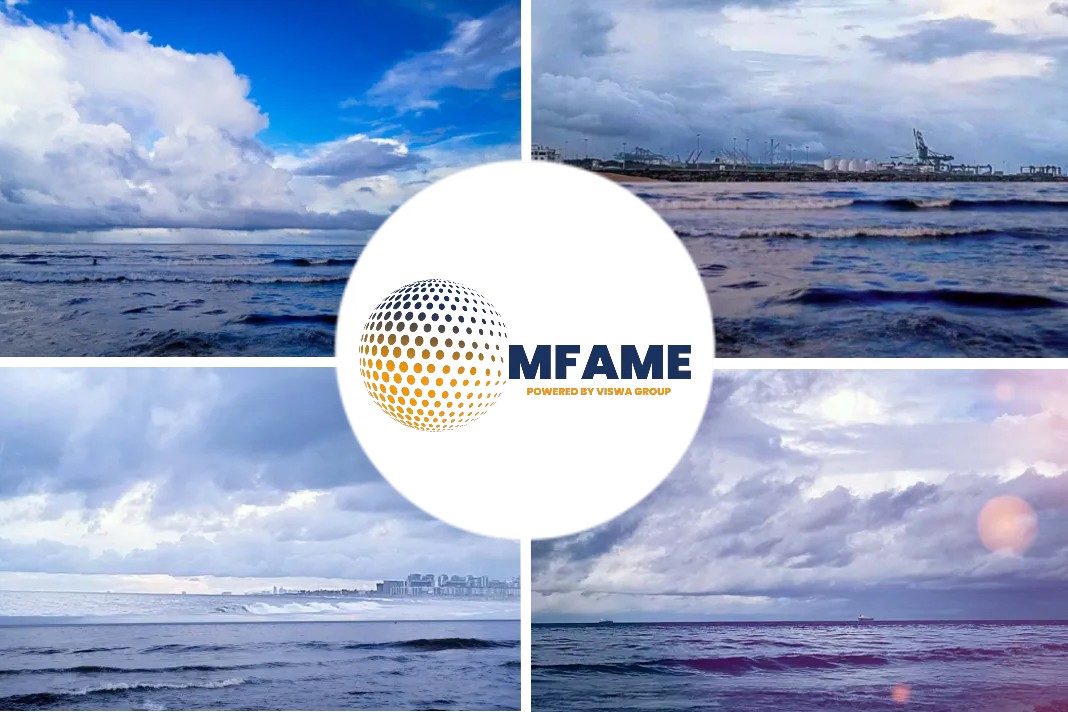
- Svitzer is also using biofuels as part of its decarbonization strategy in the form of its towage service called Ecotow.
- Methanol as a marine fuel is also at the core of Maersk’s decarbonization strategy as a solution that can deliver immediate benefits to the environment.
- Svitzer is aiming to achieve a 50% reduction in the CO2 intensity of its entire fleet by 2030 and become CO2 neutral across all scopes by 2040.
Global towage operator Svitzer, a part of A.P. Moller-Maersk, has signed a Memorandum of Understanding (MOU) with Houston-based Caterpillar Marine to adopt solutions that enable Svitzer to utilize methanol in their fleet.
Switching fleet to methanol
Under the partnership, the duo plans to work on the installation of dual-fuel methanol engines on new tugs as well as conversions of existing Cat® powered tugs, which comprise the majority of Svitzer’s fleet.
Svitzer is also using biofuels as part of its decarbonization strategy in the form of its towage service called Ecotow.
The Ecotow product exclusively uses sustainable second-generation biofuels, produced using waste material such as used cooking oil as feedstocks, certified by ISSC or RSB.
Relative to marine diesel, these biofuels reduce carbon emissions by 100% on a tank-to-wake basis and about 90% on a well-to-wake basis.
Caterpillar collaboration
The deal comes in the wake of Caterpillar’s recent announcement regarding Cat 3500-E series methanol-readiness announcement which was made in September 2022.
The engine is also at the center of Caterpillar’s collaboration with Dutch shipbuilder Damen for the joint development of a series of dual-fuel methanol/diesel powered tugs.
“Svitzer has a significant fleet of vessels powered by Cat systems, as well as ambitious decarbonization targets for our future fleet.
It is therefore of utmost importance that we join forces with strategic collaborators, such as Caterpillar Marine, to find solutions for both existing and future vessels,” said Kasper Karlsen, global chief operating officer of Svitzer.
Carbon neutral by 2040
Svitzer is aiming to achieve a 50% reduction in the CO2 intensity of its entire fleet by 2030 and become CO2 neutral across all scopes by 2040.
“Given the size and complexity of our fleet and the ambitious target we have set of becoming carbon neutral in 2040, it is critical to take a holistic approach to reducing our CO2 emissions.
While we seek to mature and utilize new technologies, fuel types and operational approaches for new vessels, we also have to find solutions that help reduce the emissions from our existing fleet.
The support Caterpillar provides in finding ways of converting our equipment to methanol usage plays a key role in this,” says Gareth Prowse, head of decarbonization for Svitzer.
Green methanol
“The focus of our collaboration is two-fold. We are supporting Svitzer to enable tugs to operate on methanol with diesel-like performance while providing fuel flexibility which is key to enabling operators to lower their carbon intensity via green methanol as availability increases.
Additionally, we’re taking full advantage of the learnings to provide conversion solutions for the existing fleet. This is a critical aspect to reach the level of methanol adoption that Svitzer seeks to fulfill their goals,” said Andres Perez, global tug segment manager, Caterpillar Marine.
Maersk’s decarbonization strategy
Methanol as a marine fuel is also at the core of Maersk’s decarbonization strategy as a solution that can deliver immediate benefits to the environment.
The container shipping major has just achieved a milestone with regard to the construction of its methanol-powered fleet. Namely, at the beginning of this month, Hyundai Mipo Dockyard launched Maersk’s first methanol-powered feeder vessel.
The ship is the company’s first carbon-neutral vessel and it will join its fleet in the summer of this year.
The feeder will be followed by 18 large ocean-going vessels of 16,000-17,200 TEU capacity which are scheduled for delivery in 2024 and 2025.
Did you subscribe to our Newsletter?
It’s Free! Click here to Subscribe.
Source: Offshore Energy

















